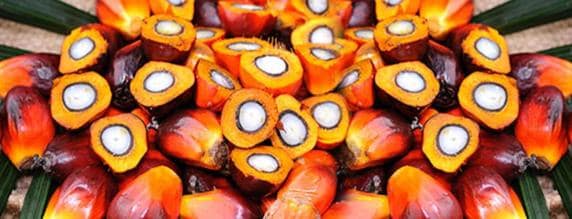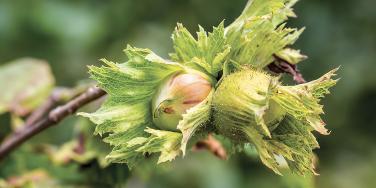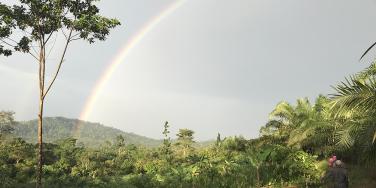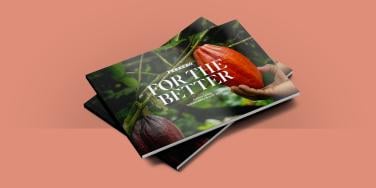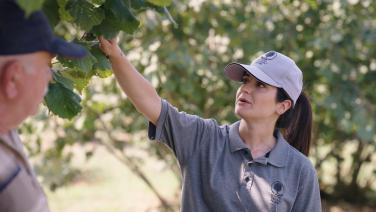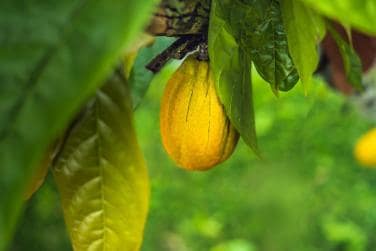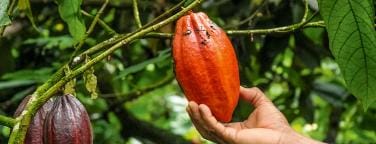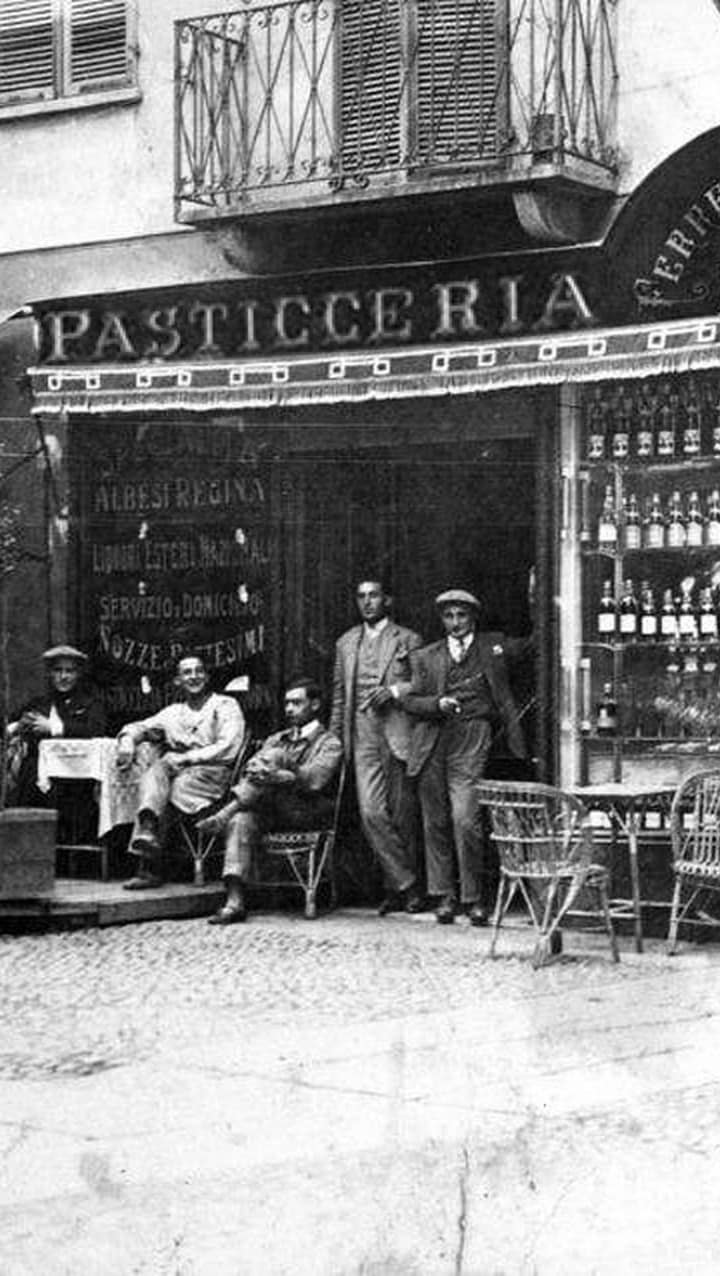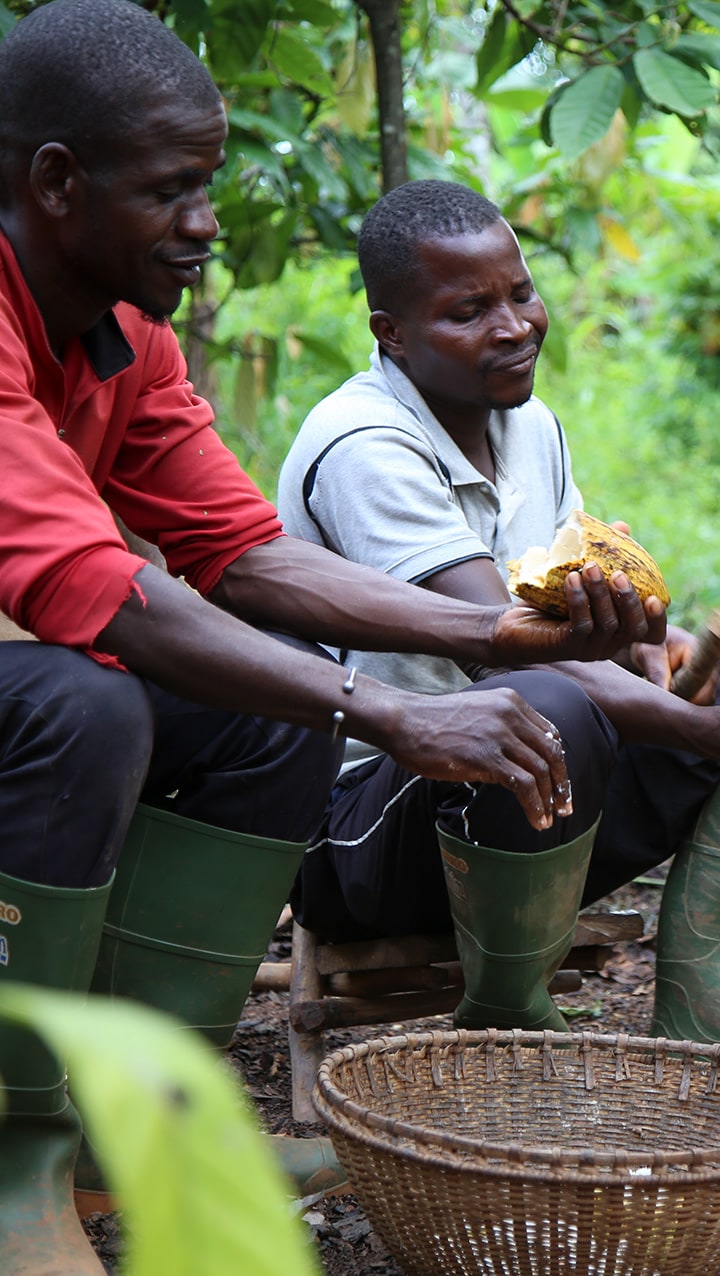FERRERO’S FOURTH PALM OIL PROGRESS REPORT
Introduction
Palm oil grabs the headlines for the environmental and social impacts caused through production.
However some actors of the industry are taking action to address the whole range of issues that palm oil production is facing.
We, at Ferrero, launched our Palm Oil Charter in November 2013 in order to bring palm oil production towards responsible practices which protects and maintains High Carbon Stock forest and key habitats (High Conservation Value areas and peat lands), as well as respecting human rights.
In order to achieve this, it is fundamental to know where the palm oil comes from to thus be able to identify where improvement is needed. We believe it important to assure our consumers that the palm oil in our products does not contribute to deforestation or the exploitation of communities and workers. For this reason Ferrero is working with its partner, TFT, to reach full traceability to the palm oil plantations we source from. This means we have identified each actor along the supply chain, down to the plantations growing the Fresh Fruit Bunches from which the palm oil used in our products is squeezed and further processed.
Together with TFT, we have assessed our suppliers’ performance in line with our Charter. After this evaluation, an action plan was agreed with each supplier in order to support the transformation of their practices with our Charter.
A further step forward on our journey to responsible palm was our membership with the Palm Oil Innovation Group (POIG) in November 2015. The POIG binds non-governmental-organisations, consumer companies and palm oil producers to a comprehensive action plan through new business practices that protect wildlife, forests and peatlands, as well preventing the violation of local communities and workers.
Traceability to the plantations – the source of Ferrero’s palm oil
In 2015 Ferrero achieved its objective of certifying 100% of its palm oil volumes as well as its entire supply chain and production line as segregated by the RSPO. This ensures that 100 % of the palm oil used in our products comes from RSPO certified palm plantations.
In line with our Charter’s aim to better understand our supply chain and consequently protect the forests and peoples’ rights, we have worked with TFT to engage with our suppliers and to build visibility on the palm oil mills and the plantations we are buying from. The first step in this process of increased visibility is full traceability. To date (December 2015) we have reached traceability to 99.5 % of the plantations we source our palm oil from. The traceability to the plantations means we know the name of the estates and of the parent companies which manage it, as well as their GPS coordinates.
Our current records show that this 99.5% of our palm oil supply comes from 63 mills and 301 plantations located in: Peninsula Malaysia (75.87% of total volumes), Papua New Guinea (18.17%), Insular Malaysia (3.67%), Brazil (1.2%), Indonesia (0.91%), Guatemala (0.1%) and the Solomon Islands (0.08%). From our analysis 6.34% of the palm oil volumes we buy are coming from approximately 20,941 smallholders or small farmers.
The Charter: a comprehensive tool to face the whole range of challenges.
We have been working towards a responsible supply of palm oil since 2005. At that time our first strategy involved sourcing RSPO certified as segregated palm oil. Despite already achieving this 100% RSPO segregated certified palm oil objective in 2015, we didn't stop there. Since November 2013 our commitment has gone beyond the certification scheme through our palm oil Charter, which lists Principles based on the respect of human rights and protection of forests that we expect our suppliers to meet. We also became a member of TFT, a global non-profit organisation, whose role is to support us in implementing our commitment on the ground.
Once aware of the origin of the palm oil we buy, together with TFT, we were able to conduct desktop evaluations of the performance of identified plantation companies in relation to forest protection, peat soils management and other environmental and social factors. This has helped to identify priority suppliers to engage with - those who potentially need additional support to close the gaps with our Charter.
We have started working in the estates we supply from in order to assure our consumers that the palm oil in our products does not contribute to deforestation as well as the exploitation of communities and workers.
In 2014 our teams, with TFT's support, started visiting priority mills and carrying out documentation verification and field visits in the supplying plantations, with four supplier group companies in Peninsula Malaysia (covering75.49% of our palm oil supply). At the end of each visit, a meeting was held with the suppliers to advise them of any issues found related to our Charter, and to establish and discuss a time-bound action plan with each grower.
Improving our suppliers practices - follow up from the field visits
In 2015 Ferrero and TFT followed up on the action plan and it was found that 3 of the 4 suppliers had taken considerable measures to address the issues found in 2014 such as performing HCS assessment, stop burning, reviewing workers’ conditions, providing drinkable water to workers, improve grievance procedures, and develop responsible palm oil policies at a Group level.
Further discussions with the fourth supplier have been carried out in order to finalize the priorities in the action plan within a defined deadline. Given the relevance and sensitivity of the topics raised, meetings on monthly-basis have been planned in 2016 in order to continue in working closely on improvements and to provide support.
To summarize, currently, Ferrero's supply chain may essentially be impacted by weak labor conditions and inappropriate small holder practices. The complexity of these issues does not allow for one-size-fits-all solution. Ferrero will engage with its suppliers in order to work and progress towards long term solutions.
Beside Peninsula Malaysia, desktop evaluations for Indonesia, Insular Malaysia, Guatemala, PNG, have been carried out this year and the conclusion was that field visit aren't needed before launching the Verification Protocol. It is a monitoring system that is specifically designed to take into consideration the general weaknesses in our supply chain as well as in the palm oil industry.
The Ferrero Protocol – Verification of the charter implementation
The two last years of our work with TFT have revealed the different layers of complexity of the implementation of our Charter depending on the suppliers. This charter works for Ferrero as a well-established tool for bringing our suppliers closer to better practices.
The level of visibility of the supply chain's performance that Ferrero has acquired since the publication of the charter allows us to take a further step forward on our journey to responsible palm oil.
In order to further ensure that our charter's implementation is robust and credible, Ferrero, with TFT support, has developed a Verification Protocol, which describes the system Ferrero is putting in place to monitor compliance with the charter's Principles throughout our entire supply chain.
Once the protocol is fully implemented, Ferrero will communicate the findings.
In addition, an auditing company has been hired - as a 3rd party verification body - to validate the Protocol implementation and the information communicated (outcome, progress, etc).
To date we have presented this document to all our suppliers in one-to-one meetings and shared it with international NGOs in order to receive their feedback.
We aim to collect and consider all feedback to then launch the Verification Protocol during the first quarter of 2016.
The first steps will include trialing the various means of monitoring for each of the Charter's principles and building a comprehensive communication tool to provide transparency to our activities on the ground.
Supporting smallholders towards better livelihood and responsible practices
One of the pillars of the Palm Oil Charter is the inclusion of smallholder farmers in our supply chains. In the palm oil sector, they make up about 40 % of planted hectares but they are not always integrated into the market value chain, mainly when it is certified RSPO segregated. Indeed certification is difficult and not always profitable for small holders. Additionally there are challenges of linking diverse smallholders to formal markets. Specifically, larger plantations have long tried to improve efficiency and minimise costs by simplifying and standardising their supply bases - which often reduces opportunities for smallholders.
With TFT, Ferrero is working to launch the Rurality initiative, focused on the cultural, ecological, and logistical diversity of smallholders’ work, to thus provide tailored support to enable them to be part of the market as well as improve their resilience.
In 2015, with our direct supplier, ISF, and TFT, we have worked to identify and engage with potential communities within our supply chain to be part of the initiative. At present, 3 meetings have already been held in Peninsular Malaysia in order to present and discuss the approach. In 2016 Ferrero will continue this initiated work with our suppliers in order to launch such initiative.
POIG membership - Raising the bar
One year after becoming a POIG (Palm Oil Innovation Group) supporter, in November 2015 Ferrero became a POIG member.
The POIG brings together environmental and social NGOs, palm oil companies and brands to push the boundaries of current RSPO requirements by establishing new business practices in the palm oil industry that end deforestation, the burning and development of peatlands and gross labour and human rights violations.
Ferrero shares the same values and vision of the POIG and it has led us to continue to endorse the POIG innovative program to protect forests as well as communities and workers’ rights throughout the palm oil supply chain.
Within a framework characterised by a wide array of no-deforestation initiatives and pledges, the POIG represents a comprehensive, comparable, credible and collaborative initiative addressing the whole range of challenges that the palm oil sector faces.
Additional information:
• Ferrero 1st palm oil progress report
• Ferrero 2nd palm oil progress report
• Ferrero 3rd palm oil progress report
• www.tft-earth.org
FAQ
1. What are palm oil key facts?
• Palm oil and palm kernel oil represent 32 % of the global vegetable oil production.
• 56.5 million tons of palm oil is produced annually. – (Oil World 2014)
• One palm tree produces 40 kilograms of palm oil every year.
• One hectare of oil palm trees can produce on average 3.7 tons of oil each year.
• Oil palm production accounts for 6 % of all cultivated land for vegetable oils globally, but has the highest output, producing 32 % of all oils and fats.
• Indonesia and Malaysia supply 85 % of the palm oil used globally.
• In Indonesia and Malaysia together, approximately 4.5 million people earn a living from palm oil.
• The use of palm oil in human nutrition dates back 10,000 years.
Source : www.palmoilandfood.eu/en
2. What are the Ferrero milestones towards responsible palm oil?
2005 – January- Ferrero becomes RSPO (Roundtable on Sustainable Palm Oil) member
2013 – November – Ferrero launches the Palm Oil Charter and becomes a member of The Forest Trust.
2014 – May - Ferrero publishes its first progresses’ report about the Charter’s implementation
2014 – November – Ferrero becomes Palm Oil Innovation Group (POIG) supporter.
2014 – November – Ferrero acknowledges some remaining issues in the plantations it sources from and agree on action plan with its suppliers.
2015 – January – all Ferrero products worldwide are RSPO certified under the Segregated supply chain – which means that they physically contain sustainable palm oil from certified.
2015 – April – Ferrero endorses the High Carbon Stock (HCS) Approach the toolkit on how to identify tropical forests for conservation and degraded lands for potential plantation development.
2015 – October – Ferrero knows the mills and related plantations of origin for 99.5 % of the palm oil products it buys.
2015 – November – Ferrero becomes Palm Oil Innovation Group (POIG) member.
2015 – December – Ferrero shares its Palm Oil Charter Verification Protocol with suppliers and NGOs
3. Do the Ferrero products contain certified palm oil?
Yes, Ferrero products only contain sustainable palm oil, 100% certified segregated RSPO since January 2015.
It means that the palm oil used in Ferrero products is kept separately from conventional palm oil along the whole supply chain. So Ferrero products physically contain certified sustainable palm oil.
“In achieving 100% segregated certified sustainable palm oil within the context of the Roundtable on Sustainable Palm Oil, Ferrero has demonstrated that it is tackling tropical deforestation in a credible way" said Richard Holland, Director of WWF's Market Transformation Initiative.
4. Why does Ferrero use palm oil?
Palm oil is used in a variety of our Ferrero products, along with other attentively selected ingredients, for three reasons:
• The presence of palm oil can be adapted in different quantities to the requirements of each recipe, since some require more creamy fillings, others a crunchy texture, while some others both, and – what’s really important – without resorting to the hydrogenation process, which produces “trans fats” that have been recognized by the authorities and the scientific world as particularly harmful to health.
• It contributes to the balance among the other ingredients (such as hazelnuts, almonds) enhancing their taste, since it is odorless and tasteless, after the refining process.
• It helps to maintain the unique taste of Ferrero products along the whole shelf life, because of its higher stability to oxidation compared to other vegetable oils.
